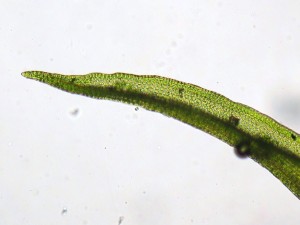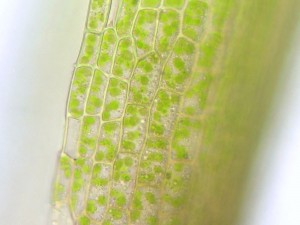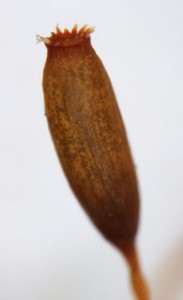Habitat
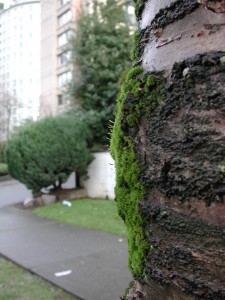 Dicranoweisia cirrata is commonly found on tree trunks, newly decomposing wood, fence posts and rocks. It is especially common on Vancouver street-side trees.
Dicranoweisia cirrata is commonly found on tree trunks, newly decomposing wood, fence posts and rocks. It is especially common on Vancouver street-side trees.
Gametophyte
Overall Structure:
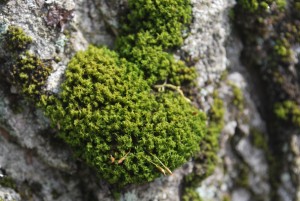 Dicranoweisia cirrata is a medium-sized acrocarpous moss that grows in yellow-green tufts or turfs.
Dicranoweisia cirrata is a medium-sized acrocarpous moss that grows in yellow-green tufts or turfs.
Leaf Structure:
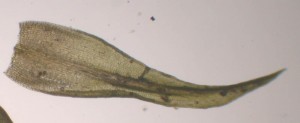 Leaves are lanceolate, gradually tapered to narrowly acute apices.
Leaves are lanceolate, gradually tapered to narrowly acute apices.
Leaf margins are more or less entire and recurved in part.
Cells near the leaf base are larger, more rectangular and thinner-walled than those above.
Stem:
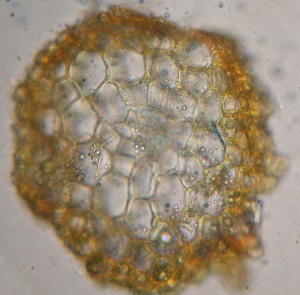 Here is a picture of a stem cross section. Note the presence of the conducting strand.
Here is a picture of a stem cross section. Note the presence of the conducting strand.
Asexual Reproduction
Gemmae:
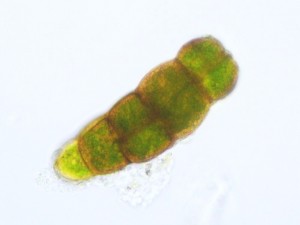 Tiny, club-shaped, multicellular gemmae are usually abundant in the axils of the leaves.
Tiny, club-shaped, multicellular gemmae are usually abundant in the axils of the leaves.
Sporophyte
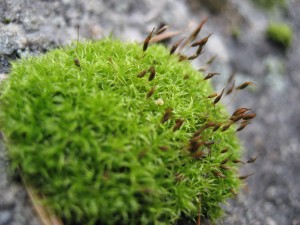 The sporophytes commonly mature in winter and spring.
The sporophytes commonly mature in winter and spring.
Sporangium:
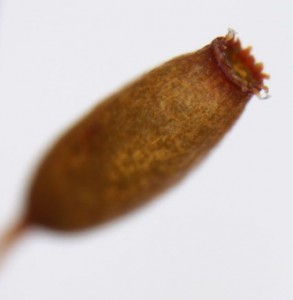 Peristome teeth are short and reddish. The operculum is bent at the apex, having the appearance of a night hat.
Peristome teeth are short and reddish. The operculum is bent at the apex, having the appearance of a night hat.
Comments:
This moss is among the most common epiphytic acrocarps found in urban areas of Greater Vancouver.

